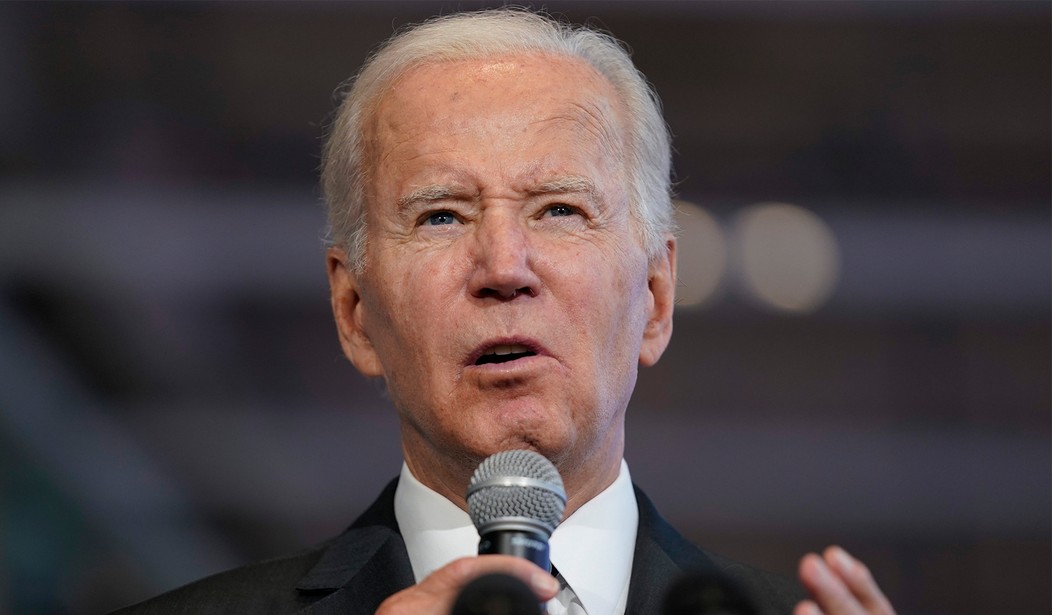"Tech platforms are notoriously opaque," the White House complained last week, saying Americans deserve to know more about how online forums decide "when and how to remove content from their sites." Yet the Biden administration, which routinely pressures social media companies to suppress speech it does not like, is hardly a model of transparency in this area.
In a lawsuit they filed last May, Louisiana Attorney General Jeff Landry and Missouri Attorney General Eric Schmitt argue that the administration's "Orwellian" crusade against "misinformation" violates the First Amendment. They are trying to find out more about this "vast 'Censorship Enterprise' across a multitude of federal agencies," and the administration is fighting them every step of the way.
So far, Landry and Schmitt have identified 45 federal officials who "communicate with social media platforms" about curtailing "misinformation." Emails obtained during discovery show those platforms are desperate to comply with the government's demands for speech restrictions, including the removal of specific messages and accounts.
On July 16, 2021, President Joe Biden accused Facebook of "killing people" by failing to suppress misinformation about COVID-19 vaccines. That same day, a senior executive at the platform's parent company emailed Surgeon General Vivek Murthy in an effort to assuage the president's anger.
"Reaching out after what has transpired over the past few days following the publication of the misinformation advisory, and culminating today in the President's remarks about us," the Meta executive wrote. "I know our teams met today to better understand the scope of what the White House expects from us on misinformation going forward."
Murthy had just published an advisory in which he urged a "whole-of-society" effort, possibly including "legal and regulatory measures," to combat the "urgent threat to public health" posed by "health misinformation." Biden's homicide charge came the next day, and Meta was keen to address the president's concerns by cracking down on speech that offended him.
Recommended
Shortly afterward, Landry and Schmitt report, the same executive sent Murthy a text message. "It's not great to be accused of killing people," he said, adding that he was "keen to find a way to deescalate and work together collaboratively."
And so he did. "Thanks again for taking the time to meet earlier today," the Meta executive said in a July 23, 2021, email to the Department of Health and Human Services. "I wanted to make sure you saw the steps we took just this past week to adjust policies on what we are removing with respect to misinformation."
The executive bragged that Meta had deleted objectionable pages, groups and Instagram accounts, taken steps to make several pages and profiles "more difficult to find on our platform" and "expanded the group of false claims that we remove." Other messages show that Twitter was equally eager to fall in line.
Social media companies have a First Amendment right to exercise editorial discretion. But that's not what is really happening when their decisions are shaped by implicit or explicit threats from the government.
The White House mentioned a few of those threats last week: "antitrust legislation," privacy regulation and "fundamental reforms" to the law that shields platforms from liability for content posted by users. Given the broad powers that the federal government has to make life difficult for social media companies, the administration's "asks" for stricter moderation are tantamount to commands.
Federal officials expect obsequious compliance, and that is what they get. This largely surreptitious exercise in censorship by proxy, practiced by an administration that preaches transparency while practicing opacity, is especially troubling because it targets not only demonstrably false claims but also speech that the government considers "misleading" or contrary to the prevailing "consensus."
Whether the subject is the origins of COVID-19, the effectiveness of face masks or the newsworthiness of Hunter Biden's laptop, that consensus often proves to be wrong. Both publicly and behind the scenes, federal officials are subverting the free inquiry and open debate required to reveal those errors.

























Join the conversation as a VIP Member